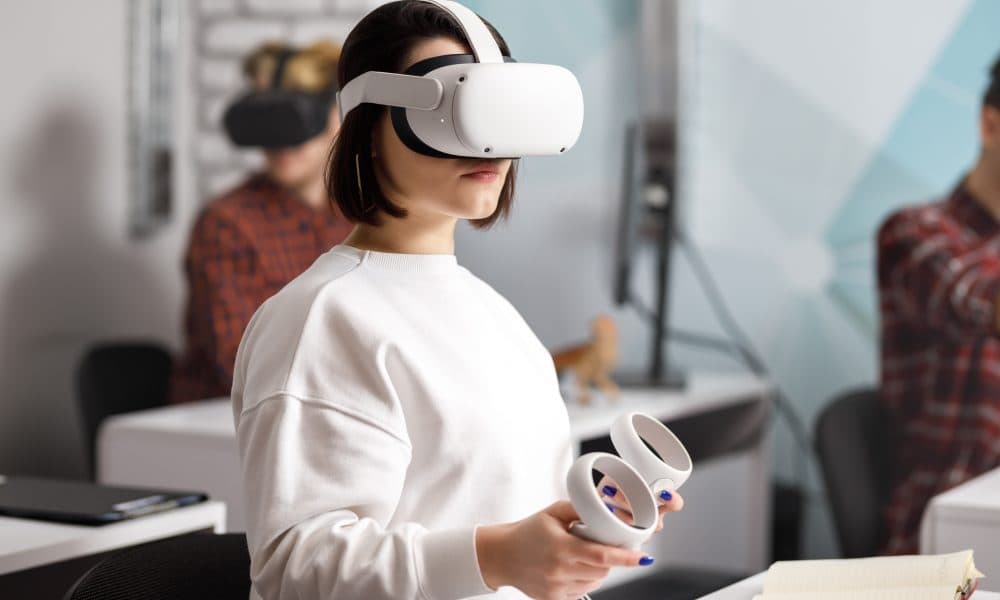
People at risk of Alzheimer’s disease have impaired spatial navigation prior to problems with other cognitive functions, including memory, a new study led by UCL researchers has revealed.
The research, published in Alzheimer’s & Dementia: The Journal of the Alzheimer’s Association, used virtual reality (VR) to test the spatial navigation of 100 asymptomatic midlife adults, aged 43-66, from the PREVENT-Dementia prospective cohort study.
Participants had a hereditary or physiological risk of Alzheimer’s disease, due to either a gene (the APOE-ε4 allele) that puts them at risk of the condition, a family history of Alzheimer’s disease or lifestyle risk factors such as low levels of physical activity.
Crucially, the participants were around 25 years younger than their estimated age of dementia onset.
Led by Professor Dennis Chan, the researcher used a test designed by Dr Andrea Castegnaro and Professor Neil Burgess (all UCL Institute of Cognitive Neuroscience), in which participants were asked to navigate within a virtual environment while wearing VR headsets.
The research team found that people at greater risk of developing Alzheimer’s disease, regardless of risk factor, were selectively impaired on the VR navigation task, without a corresponding impairment on other cognitive tests.
The researchers say their findings suggest that impairments in spatial navigation may begin to develop years, or even decades, before the onset of any other symptoms.
First author, Dr Coco Newton (UCL Institute of Cognitive Neuroscience), who carried out the work while at University of Cambridge said: “Our results indicated that this type of navigation behaviour change might represent the very earliest diagnostic signal in the Alzheimer’s disease continuum – when people move from being unimpaired to showing manifestation of the disease.”
The research team also found that there was a strong gender difference in how participants performed, with the impairment being observed in men and not women.
Dr Newton added: “We are now taking these findings forward to develop a diagnostic clinical decision support tool for the NHS in the coming years, which is a completely new way of approaching diagnostics and will hopefully help people to get a more timely and accurate diagnosis.
“This is particularly important with the emergence of anti-amyloid treatments for Alzheimer’s, which are considered to be most effective in the earliest stages of the disease.
“It also highlights the need for further study of the differing vulnerability of men and women to Alzheimer’s disease and the importance of taking gender into account for both diagnosis and future treatment.”
Professor Chan said: “We are excited by these findings for two main reasons. First, they improve detection of the clinical onset of Alzheimer’s disease, critical for prompt application of treatments.
“Second, the VR navigation test is based on our knowledge of the spatial properties of cells in the brain’s temporal lobe, and the application of cellular neuroscience to clinical populations helps bridge the gap in understanding how disease at the neuronal level can result in the clinical manifestation of disease.
“This knowledge gap currently represents one of the biggest barriers to progress in Alzheimer’s research.”
The research was carried out in collaboration with the University of Cambridge and jointly funded by the Alzheimer’s Society and an MSD research grant.


